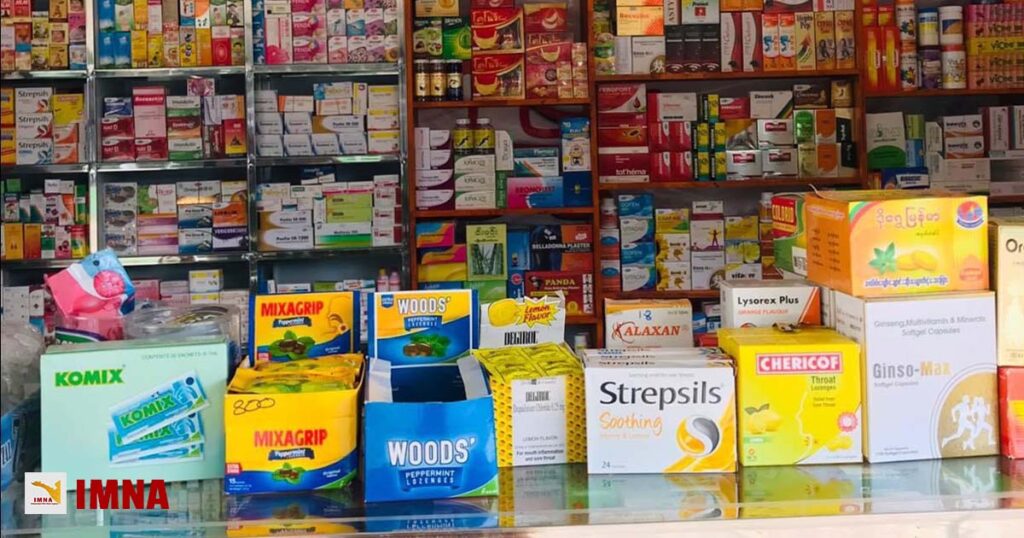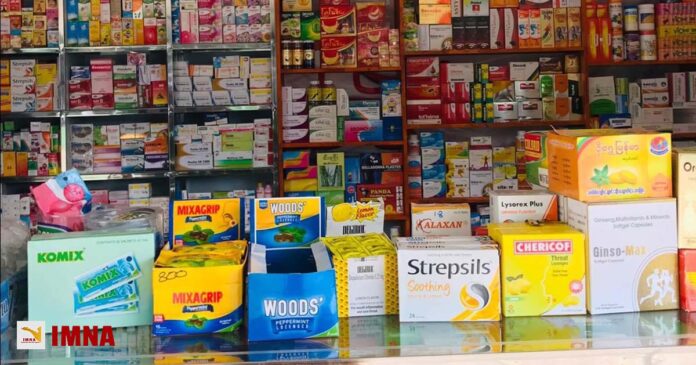Due to the daily increase in medicine prices and supply shortages, many patients with chronic illnesses are struggling to maintain regular medication regimens.
Basic over-the-counter drugs like Tiffy, which used to cost 400 kyats per card last year, now sell for around 2,000 kyats. Meanwhile, essential medicines for chronic conditions such as diabetes, hypertension, heart disease, neurological disorders, and kidney disease have seen prices soar, sometimes doubling or tripling.
A woman with a chronic condition in Yae Township said that because of the rising prices, she can only take her medication sporadically, skipping doses when necessary.
“I have a respiratory condition and need to take blood pressure medicine. Now, I can’t take it daily—I take it for three days straight and then skip six days before taking it again. The doctor prescribed daily doses, but I can’t afford to buy the medicine regularly, so I stretch it out. I also have to be extra cautious with my health since I can’t take the medication as needed. Prices change daily, and some medicines have been out of stock for a long time,” she said.
With daily wages around 6,000 kyats, many patients are prioritizing basic needs like food over their health, leaving some without access to essential medication.
Experts warn that irregular medication use can lead to worsening symptoms or even death for chronic disease patients if not treated properly.
A pharmacy owner in Mawlamyine noted that major pharmaceutical companies have raised prices and limited stock, forcing retailers to follow suit. “We sympathize with patients. When their doctors prescribe a specific brand, they come back the next day only to find it’s out of stock. Even when it’s available, the price can be six times higher, and they leave without buying anything. This is particularly difficult for those with diabetes and hypertension. A medicine that cost 40,000 kyats yesterday could cost 100,000 the next day.”
As a result, more people are relying on free clinics and charity organizations for their medical needs.
About 85% of Myanmar’s pharmaceutical market relies on imports, and the rising cost of foreign currency has caused a scarcity of household medicines and chronic illness drugs, with prices continuing to surge daily.


